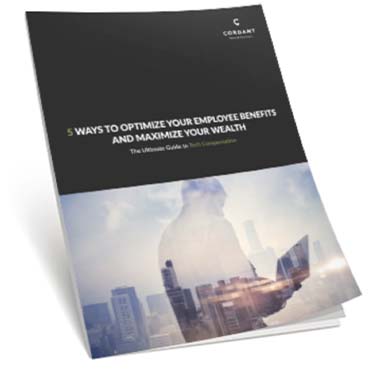A common concern we hear from many we talk with is: how do I make sure my family is taken care of if something happens to me? While not a fun topic to dwell on, being proactive is one of the greatest gifts you can give to your family—and there may even be benefits for you in doing so.
As an astronaut, Col. Chris Hadfield had to prepare for the worst-case more than most. In his book, “An Astronaut’s Guide to Life on Earth,” he reveals that planning for the worst-case can be painful at the time but ultimately puts your mind at ease. He had to do things like pick an astronaut to tell his wife if he didn’t survive the mission, review his will, and get his financial affairs in order before each mission. It seems counterintuitive but making sure his family was taken care of in his absence didn’t make him feel anxious; it actually reduced his anxiety.
According to Hadfield it, “…didn’t make me feel like I had one foot in the grave. It actually put my mind at ease and reduced my anxiety about what my family’s future would look like if something happened to me.”
So, with that in mind, let’s look at a checklist of sorts, for those of you willing to do the hard work and make sure your family is still taken care of when you’re not around.
-
Write and update your estate planning documents
These include a last will (to outline the distribution of assets, name guardians for children, and appoint an executor), trust documents (to avoid probate and for more complex situations), and Power of Attorney forms (to assign individuals responsible for making healthcare and financial decisions on your behalf).
-
Outline your wishes for a funeral or memorial service
Documenting your preference for a burial or cremation, type of service, and potentially prepaying for these services takes the burden of planning and guessing your wishes off of your family when they are grieving.
-
Form your team
The contact information for crucial advisors (CPA, Attorney, Financial Advisor, Business Partners) should be documented and kept up to date.
-
Finances
This is a broad topic but generally you will want to make sure you have adequate life insurance coverage or assets in place to replace your income, your beneficiaries for your accounts are up to date, the contact information on your bills is organized, and all your important financial records are easy to access.
-
Digital Accounts
More than ever before our digital presence is a big part of life. The easiest way for your heirs to access your accounts and manage them in line with your wishes after you are gone (and potentially delete them) is to share your login information with those you trust.
-
Organize your records
All the documents above, plus a few more, should be stored in a secure location that is accessible by those you wish. Lifehacker has a comprehensive article on this whole topic, and in it, they provide the following list of items to store:
- Will
- Letter of instruction
- Birth certificates
- Marriage certificates
- Citizenship papers
- Divorce/separation papers
- Adoption papers
- Social security numbers/cards
- Passports (numbers and expiration dates)
- Driver’s licenses (number, expiration dates)
- Military records
- Names/address/telephone numbers of healthcare professionals
- Healthcare proxies/living wills
- Medications (dosages, name of prescribing physicians, pharmacy, address/telephone
- Address and phone numbers of hospitals of choice
- Medicare numbers
- Medicaid numbers (caseworker numbers, address/telephone)
- Social worker or caseworker names and contact information
- Passwords, web sites, and other digital information
- Income sources (retirement and/or disability benefits, Social Security, etc.)
- Financial assets (institution names, account numbers, address/telephone, form of ownership, current value) of cash, bank accounts, stocks, bonds, mutual funds, money market funds, retirement and pension plans, IRAs, annuities, life insurance
- Real Estate (property addresses, location of deeds, form of ownership, current value)
- Other assets (location of items/titles/documents/form of ownership, current value) including automobiles, boats, inheritances, precious gems, collectibles, household items, hidden valuables/items in storage, loans to family members/friends
- Liabilities (Creditor institutions, address/telephone, approximate debt) of mortgages, personal loans, credit cards, notes, IOUs, other).
- Trust documents
-
Write a letter
And lastly, consider writing letters to those closest to you. Your spouse, kids, parents, siblings, close friends, and employees or colleagues. Think about what they may need to hear in their time of loss or the words you want them to remember or hear one last time. These letters could be updated at some frequency to remain current or bonus points for updating them annually (and savings the past one) so that, especially in the case of your children, they have a record every year of what you wanted to communicate to them throughout their life.
Without a doubt, preparing for the worst is a lot of work, but it’s also, a tremendous gift to those you care about most.


